The Shyest Myers-Briggs® Personality Types, Ranked
Do you get excited when you enter a busy room full of potential friends, or do you feel your heart race with anxiety? As a lifelong member of the “shy person’s club” (if there were one, we’d probably never meet), I’ve often wondered if my personality type (defined by the MBTI®) doomed me to shyness or if it was just a personal quirk. Others have asked me the same thing, so I decided to include a question about shyness in my recent ‘Friendship Survey’ that I sent to over 85,000 email subscribers, friends, clients, and social media followers. In my survey, one of the questions I asked was “What is your biggest struggle with making new friends?” Of the selections people could choose from, there were these options:
- I don’t struggle with making friends
- I don’t feel like I need new friendships
- Shyness
- Friendships are too much work
- I don’t have any hobbies or interests that facilitate friendships
- My current location doesn’t have enough people who I would want to be friends with
- I’m too busy for friendships
- I recently moved to a new location and haven’t had the chance to make new friends yet
- Other
People taking the survey could select more than one option or none at all. Overall, 4, 967 have now responded (the survey is still ongoing). The majority—77.76%—were women, while 20.62% were men, 0.94% chose not to answer, and 0.67% identified as non-binary.
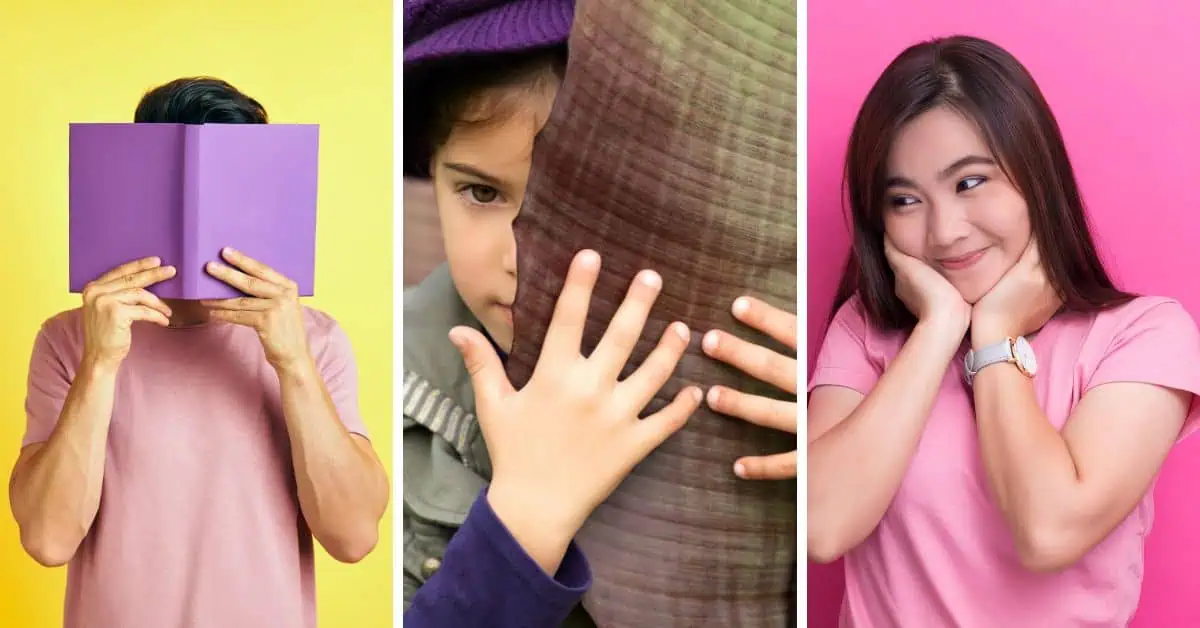
Introversion and Shyness:
While I don’t believe that all introverts are shy by any means, the biggest pattern we found was that introverts ranked significantly higher in shyness than extroverted personality types. A significant 19.06% of introverts reported struggling with shyness, compared to only 6.34% of extroverts. Quite a few introverts mentioned that they fear being misinterpreted socially; that their quietness and reserve is misconstrued as “snobby,” “arrogant,” or “cold.” Others find the pressure of interacting socially exhausting. Introverts, by nature, need more time to think before responding, and can feel rushed and put on the spot when they’re in conversation, especially with people they don’t know.
But now, let’s move on to the data! Which types had the highest scores in shyness and which struggled very little? Let’s find out!
Estimated reading time: 13 minutes
The Shyest Myers-Briggs® Personality Types, Ranked
1. ISFJ – The Protector
31.67% said they struggled with shyness
ISFJs took the lead as the shyest of the 16 Myers-Briggs® personality types. These “Protectors” often work behind the scenes to make their communities better and more stable. They are protective, supportive, and gentle, often going the extra mile to take care of details and improve life in small but profound ways. Yet being in the spotlight can be terrifying to an ISFJ, with one commenting, “I struggle a lot socially. I feel sick. I often get nauseous during social events and find my palms sweating and looking for any excuse to leave early.” Another ISFJ commented, “I enjoy hanging out with my closest friends, but those are people I’ve known since I was young. Going into a new social setting is draining and, quite frankly, scary.”
Find out more about ISFJs: The ISFJ Personality Type and the Enneagram
2. INFP – The Dreamer
21.67% said they struggled with shyness
INFPs, also known as “Dreamers,” ranked second in shyness among the Myers-Briggs® personality types, with 21.67% expressing a struggle with this trait. INFPs are driven by authenticity, imagination, and a determination to improve the world for the underdog. They are happiest in environments where they can explore their creative passions and serve causes they believe in. But social interactions can frequently feel daunting and overwhelming. One INFP shared, “I feel like I’m always overthinking every word I say, worried that people will misunderstand or judge me.” Another remarked, “When I’m in a social setting, it’s like my mind goes blank. It takes so much energy to even approach someone and start a conversation.” INFPs do want meaningful friendships, but they need time to get past the sometimes daunting nature of introductions and chit-chat.
Discover more about INFPs: 21 Songs That INFPs Will Relate To
3. ISFP – The Virtuoso
18.37% said they struggled with shyness
ISFPs, known as “Virtuosos” or “Artists,” come in third in terms of shyness, with 18.37% admitting to struggles with this trait. ISFPs are known for their spontaneous, creative, and deeply individualistic nature. They are deeply observant, and often know how to pick up on the overall vibe of a room. Reading people is easy for ISFPs, but interacting with them can be more of a struggle. One ISFP stated, “I feel most comfortable expressing myself through art or actions rather than words. In a new social situation, I often find myself at a loss for what to say and worry that I’ll come off as awkward.” Another shared, “Small talk is exhausting for me. I’m much better one-on-one.” ISFPs crave honest, raw conversations, but may need a little extra time and space to open up and show their true selves.
Find out more about ISFPs: What It Means to be an ISFP Personality Type
4. INFJ – The Mystic
18.04% said they struggled with shyness
INFJs, often referred to as “Advocates,” ranked fourth in terms of shyness, with 18.04% acknowledging struggles with this trait. Known for their deep insights, empathy, and strong sense of intuition, INFJs are driven by their desire to help others and make the world a better place. Yet, social interactions can feel draining and exhausting to them. One INFJ revealed, “I find it really hard to start conversations, especially in larger groups. I constantly worry about saying something wrong or not fitting in.” Another mentioned, “I can be very outgoing with people I know well, but new social settings tire me quickly. I need a lot of alone time to recharge afterwards.” INFJs crave meaningful, deep connections but often feel overwhelmed by the superficial nature of initial conversations with others.
Curious about INFJs? Read more: 10 Things You Crave Every Day as an INFJ Personality Type
5. ISTJ – The Detective
17.65% said they struggled with shyness
ISTJs, often known as “Detectives,” are the fifth most likely to struggle with shyness, with 17.65% admitting to dealing with this trait. While Detectives may appear detached, beneath the surface, they feel deeply and are often the first to help out in a crisis. “Fluff” and manipulation? They have no patience for it. One ISTJ shared, “People often think I’m distant, but I actually do care. Socializing isn’t my thing, but when I talk, I want to be real.” Many ISTJs in the comments said that people misinterpret their quiet, reserved nature as arrogance, when they aren’t actually feeling that way.
Find out more about ISTJs: ISTJ vs ISTP – Which One Are You?
6. ISTP – The Vigilante
17.50% said they struggled with shyness
ISTPs, also known as “Vigilantes,” are the sixth most likely to struggle with shyness, with 17.50% admitting that this was a roadblock to making friends. They crave independence, autonomy, and variety. Formal social events tend to feel just about as interesting as watching paint dry for most ISTPs. Instead, they enjoy one-on-one conversations or social events that have a game at the center of them that they can participate in. One ISTP commented, “It seems as though my stoic demeanor gets mistaken for conventionality.” Another ISTP shared, “I find it easier to connect with people when there is a purpose or activity involved, rather than just talking for the sake of talking.
Discover more about ISTPs: The ISTP Cognitive Function Stack
7. INTJ – The Strategist
14.09% said they struggled with shyness
INTJs, called “the Strategists,” ranked seventh in terms of shyness. These independent thinkers are driven by a relentless thirst for knowledge and a passion for understanding the deeper meaning of life. They might seem detached and analytical on the outside, but beneath that cool exterior, they also crave authentic friendships and shared intellectual discovery. One INTJ confessed, “People sometimes see me as aloof, but I’m just deep in thought most of the time.” Another remarked, “People misunderstand the fact that by being distant and quiet I am not interested in interacting with others, that I am boring or sad/angry and that in general nothing matters to me. Although in reality I do seek those experiences but I am very cautious about interacting with others. Trust is everything.”
Find out more about INTJs: 10 Things You Crave Every Day as an INTJ Personality Type
8. INTP – The Prodigy
13.54% said they struggled with shyness
INTPs, known as “Prodigies,” come in eighth when it comes to shyness, with 13.54% citing this as a challenge. Prodigies are the quintessential thinkers, happiest when making intellectual discoveries, gathering knowledge, and generating theories. Despite their eagerness to take on intellectual challenges, they often feel less bold in social scenarios. One INTP shared candidly, “It’s difficult for me to express myself or get people to understand what I say.” Others have found themselves misunderstood, as their detached, analytical way of processing the world can make their conversational style seem overly complex. Yet it’s not hopeless, with one INTP remarking, “Once I got comfortable with a little small talk things got better. I stopped avoiding it and saw it as a key to open the door to better and more interesting conversations. I just had to stop seeing it as the ‘only’ thing people wanted. I’ve learned most people don’t want to only talk about the weather.”
Discover more about INTPs: Exploring 15 Iconic INTP Characters
9. ESTJ – The Captain
12.04% said they struggled with shyness
ESTJs, called “The Captains,” find themselves in ninth place with 12.04% admitting to occasional struggles with shyness. They tend to appear confident, straightforward, and blunt. But even the most confident-seeming people still occasionally struggle with some social anxiety. One ESTJ shared, “I’m great at giving directions and making sure things get done, but chit-chatting can feel awkward.” Another Captain confessed, “I feel awkward whenever things get too personal, but I’m working on it.” Still many ESTJs don’t struggle with shyness at all, with several people in the survey commenting that they enjoy their wide circles of friends and if people don’t like them, that’s “their problem.
Discover more about the ESTJ: 10 Things You Crave Every Day as an ESTJ Personality Type
10. ENTP – The Trailblazer
10% said they struggled with shyness
ENTPs, known as “Trailblazers,” are definitely not the first people you think of when you hear the word “Shy.” They enjoy brainstorming, swapping ideas, arguing (good-naturedly), and making people laugh. But that doesn’t mean having the ENTP personality type makes you immune to all forms of social anxiety. One Trailblazer opened up, “I can entertain a room full of people, but sometimes I feel a bit like an imposter when doing it.” While another ENTP stated, “I don’t feel shy, but I get major second-hand embarrassment. Always have.”
11. ENFP – The Visionary
8.75% said they struggled with shyness
The ENFP “visionaries” came in at eleventh place, with 8.75% admitting they struggle with shyness. These enthusiastic, creative types are happiest when they’re forming deep connections with others, dreaming up big plans and ideas, breaking boundaries and imagining. Still, shyness can occasionally play a part in their lives. One ENFP mentioned, “I’m great at starting conversations, but when it comes to opening up about myself, I feel awkward unless we’re really close.” Another Visionary shared, “I love meeting new people, but sometimes they misunderstand my excitement for flakiness. I hate that.” This seems to be a common theme with ENFPs; people misconstrue their sunniness for “bubbly vapidness” as one ENFP said, or they think they’re flirting when they’re not. Despite this, ENFPs tend to be optimistic and resilient, with one responding “I’ve learned to not give a crap about what people think of me and just be myself.”
Find out more about ENFPs: The Dark Side of the ENFP Personality Type
12. ESFJ – The Defender
8.70% said they struggled with shyness
ESFJs, called “Defenders,” come in twelfth with 8.70% admitting they struggle with shyness. These warm, people-focused individuals love to get the ball rolling, involve everyone, and make sure no one feels left out. But even someone with their social savvy can feel the sting of a social misstep. One ESFJ shared, “I love organizing parties and bringing people together, but if I say something wrong, I can’t stop thinking about it for days.” Another Defender confessed, “I want everyone to feel included and sometimes I overthink things, forgetting to have fun myself.” Despite this, ESFJs have a talent for creating comfortable, welcoming atmospheres. One ESFJ commented, “I try to let it go and focus on making people happy, which is what really matters to me.”
Find out more about ESFJs: 10 Signs of an Unhealthy ESFJ
13. ENTJ – The Director
7.69% said they struggled with shyness
ENTJs, known as “The Directors,” come in at thirteenth with 7.69% admitting they struggle with shyness. Typically, they project an image of confidence, directness, and overall bluntness. However, even the most assertive individuals can find themselves retreating when conversations get too personal or filled with emotions. One ENTJ opened up, “I’m great at making decisions and leading teams, but when it comes to personal stuff, I don’t know what I’m doing.” While ENTJs tend to appear no-nonsense and task-focused, they also understand the importance of personal conversations, with many growing into a deeper comfort with emotions as they get older.
Read more about ENTJs: The ENTJ Personality Type In-Depth
14. ENFJ – The Mentor
2% said they struggled with shyness
Only 2% of the ENFJs in our survey reported struggling with shyness, making them one of the least shy personality types on this list. Deliberate, empathic, and warm, ENFJs know how to make you feel seen and heard in a conversation. One Mentor shared, “I love getting to know people intimately and helping them feel seen and appreciated.” But this doesn’t mean they’re completely immune to social anxiety. Another ENFJ confided, “Sometimes I worry too much about making sure everyone is happy and forget to take care of myself.” ENFJs have a unique ability to read people and gain insights into their emotions, which helps them to create a welcoming and inclusive atmosphere.
Find out more about ENFJs: 5 Things People Misunderstand About ENFJs
15. ESFP – The Champion
1.54% said they struggled with shyness
ESFPs, known as “The Champions,” are naturals when it comes to social settings. Enthusiastic, adventurous, and spontaneous, they thrive on getting to know people and jumping into new experiences. It’s no surprise that only 1.54% of ESFPs reported struggling with shyness. One Champion shared, “I love spending time with friends and making new ones. It’s easy for me to break the ice and keep things fun.” Another ESFP said, “I don’t feel shy. Life’s too short to hold back!” With their warm and accepting presence, ESFPs are often seen as the life of social gatherings. While they might occasionally experience a twinge of nervousness, it rarely holds them back from diving in headfirst and making the most out of every moment.
16. ESTP – The Daredevil
0% said they struggled with shyness
ESTPs, called “The Daredevils,” are fearless when it comes to taking on new challenges and diving into social situations. 0% reported struggling with shyness (I’m not jealous, I promise). These dynamic individuals don’t really see the need to worry about first impressions. They know how to read the room, make people laugh, and keep things casual and fun. One Daredevil shared, “If people don’t like me, I don’t really care.” Another said, “I just don’t really care if a person doesn’t like me or misunderstands me. That’s their loss. So it probably just doesn’t stick with me if they do.”
What Do You Think?
Do you grapple with shyness at times? How do you cope? What advice would you give to others with your personality type? Let us know in the comments!
Discover even more about your personality type in our eBooks, Discovering You: Unlocking the Power of Personality Type, The INFJ – Understanding the Mystic, The INTJ – Understanding the Strategist, and The INFP – Understanding the Dreamer. You can also connect with me via Facebook, Instagram, or Twitter!

Subscribe to Our Newsletter

Want to discover more about personality type? Get the inside scoop with Susan Storm on all things typological, along with special subscriber freebies, and discounts on new eBooks and courses! Join our newsletter today!


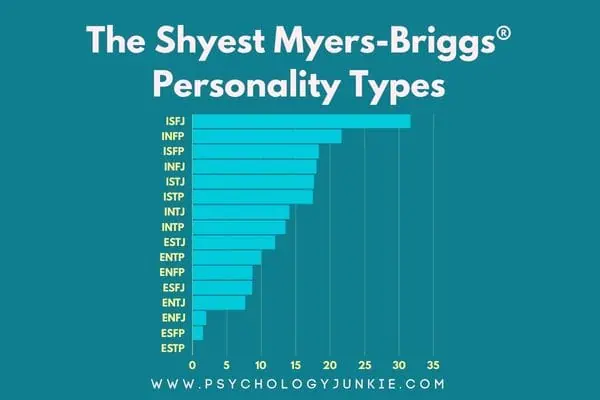




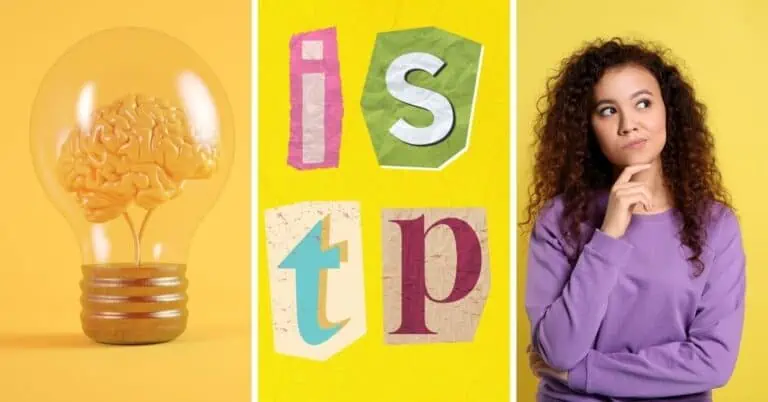
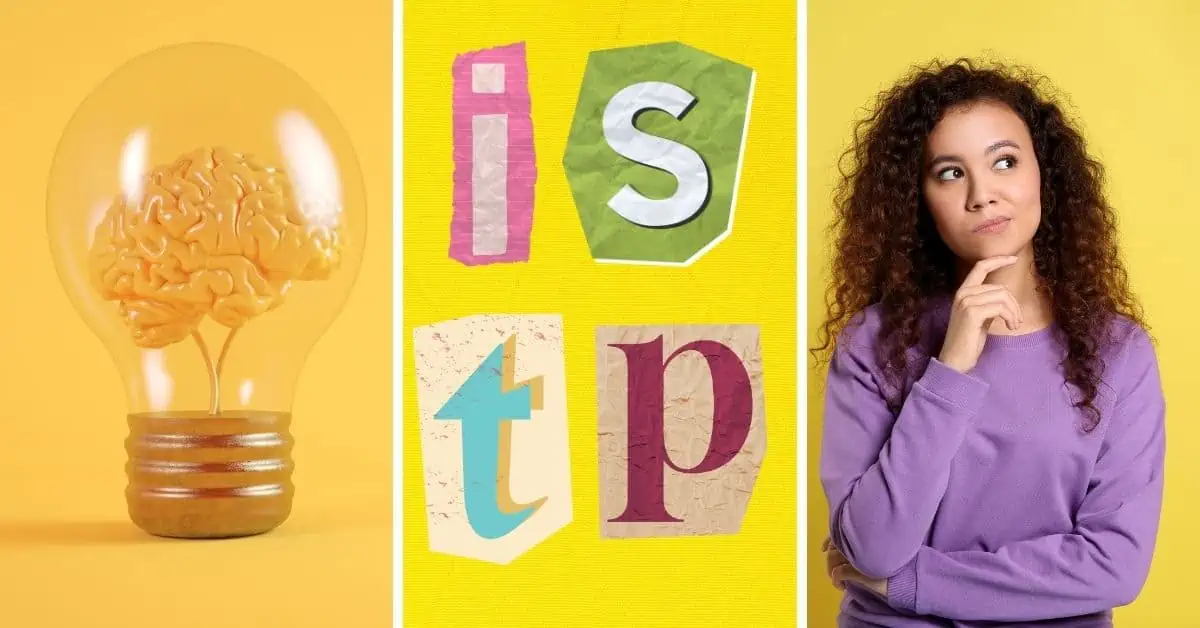


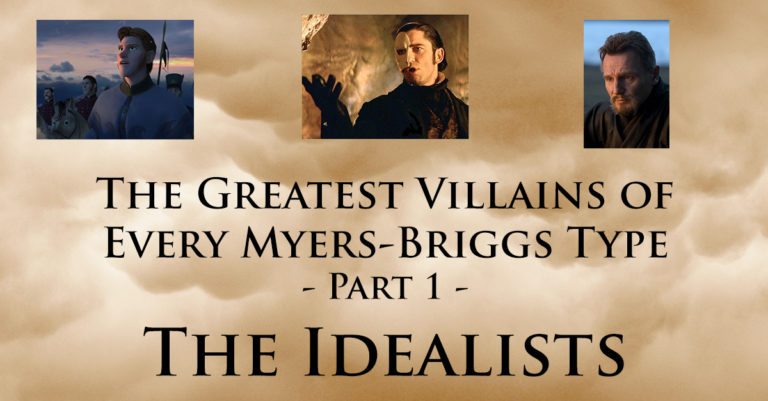
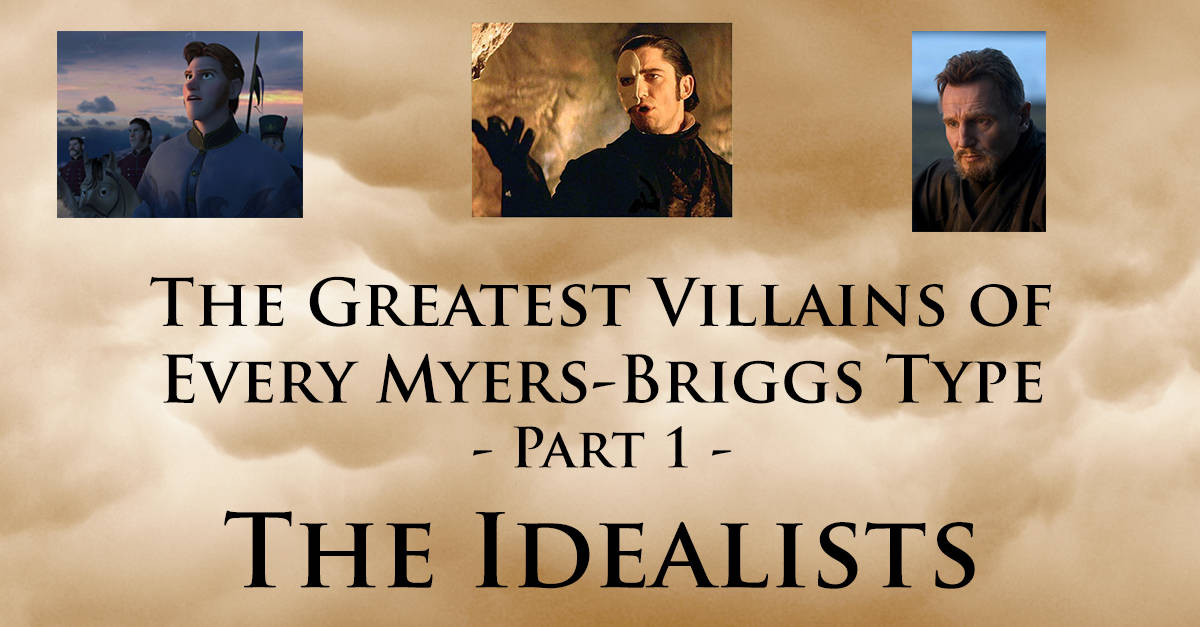
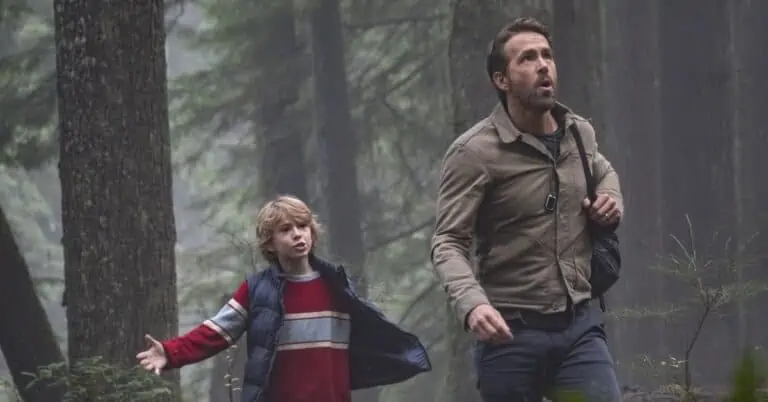
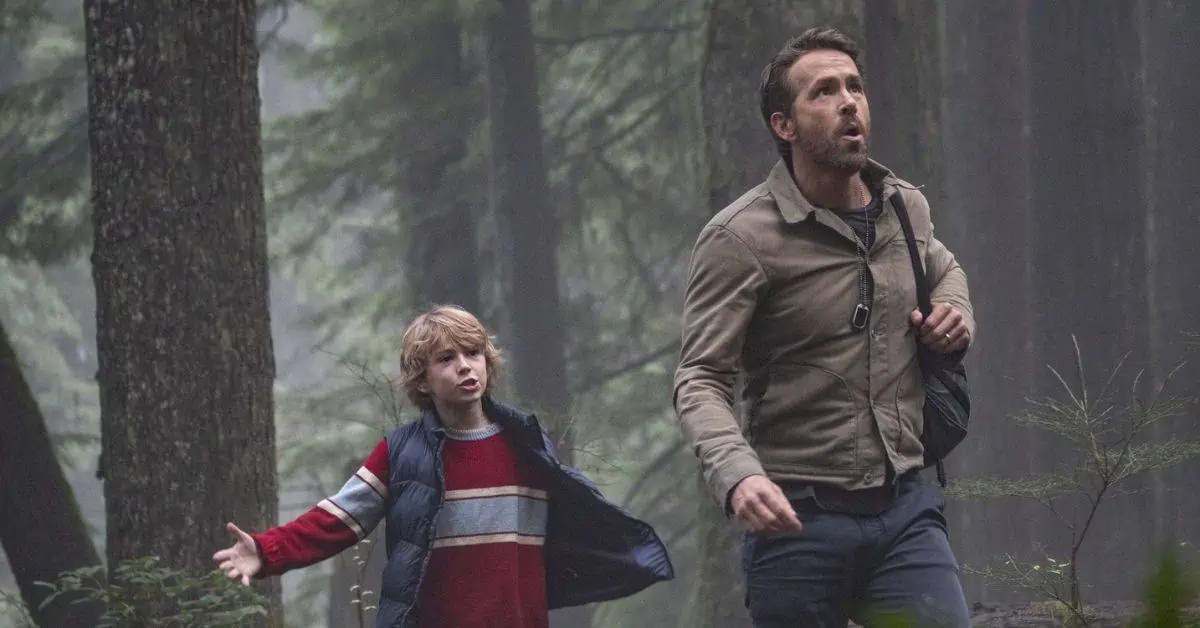
I love the chart image at the top which summarizes the data, but entp is missing from it!
Thank you!! I just fixed it 🙂
Sorry if I have bad spelling (I speak Spanish and little English)
During my school and university days I had friends, but since I was 26 I have lost interest because I don’t chat much, since I am more focused on my interests, leisure and work. That’s why my friend may misinterpret me as an introvert, but I don’t care, because I know what it’s like to be part of a group of friends and a collective (experiences).
Sorry if my spelling in English is wrong (I speak Spanish and a little English).
Honestly, during my time in primary and secondary school I had no problems making friends or talking to any classmate. Likewise, at university I had my small group of friends, but last year (26 years old) I understood several things about myself:
1. I get so bored with monotonous conversations.
2. I show low interest in chatting.
3. I am more focused on my interests, work and leisure.
4. What some see as funny, for me is not and that is fine for me because I respect different perceptions, but why do people have the bad habit of telling others how they should or should not be!? 🤔. When I learned on my own to respect differences 🤷. So it’s 😤 frustrating.